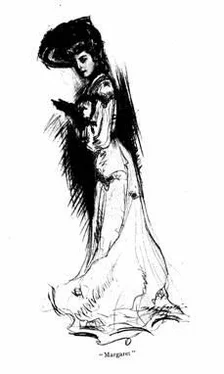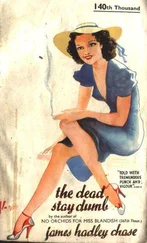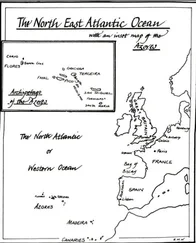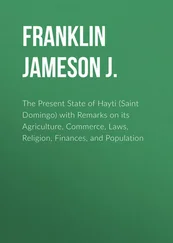James Cabell - The Eagle's Shadow
Здесь есть возможность читать онлайн «James Cabell - The Eagle's Shadow» весь текст электронной книги совершенно бесплатно (целиком полную версию без сокращений). В некоторых случаях можно слушать аудио, скачать через торрент в формате fb2 и присутствует краткое содержание. Жанр: Современная проза, на английском языке. Описание произведения, (предисловие) а так же отзывы посетителей доступны на портале библиотеки ЛибКат.
- Название:The Eagle's Shadow
- Автор:
- Жанр:
- Год:неизвестен
- ISBN:нет данных
- Рейтинг книги:4 / 5. Голосов: 1
-
Избранное:Добавить в избранное
- Отзывы:
-
Ваша оценка:
- 80
- 1
- 2
- 3
- 4
- 5
The Eagle's Shadow: краткое содержание, описание и аннотация
Предлагаем к чтению аннотацию, описание, краткое содержание или предисловие (зависит от того, что написал сам автор книги «The Eagle's Shadow»). Если вы не нашли необходимую информацию о книге — напишите в комментариях, мы постараемся отыскать её.
The Eagle's Shadow — читать онлайн бесплатно полную книгу (весь текст) целиком
Ниже представлен текст книги, разбитый по страницам. Система сохранения места последней прочитанной страницы, позволяет с удобством читать онлайн бесплатно книгу «The Eagle's Shadow», без необходимости каждый раз заново искать на чём Вы остановились. Поставьте закладку, и сможете в любой момент перейти на страницу, на которой закончили чтение.
Интервал:
Закладка:
He gasped and took a short turn about the court.
"Pardon me, Miss Hugonin," he entreated, when his emotions were under a little better control, "for having spoken as I did. I had forgotten. Think of me, if you will, as no better than the others—think of me as a mere fortune-hunter. My presumption will be justly punished."
"Oh, no, no, it isn't that," she cried; "it isn't that, is it? You—you would care just as much about me if I were poor, wouldn't you, beautiful? I don't want you to care for me, of course," Margaret added, with haste. "I want to go on being friends. Oh, that money, that nasty money!" she cried, in a sudden gust of petulance. "It makes me so distrustful, and I can't help it!"
He smiled at her wistfully. "My dear," said he, "are there no mirrors at Selwoode to remove your doubts?"
"I—yes, I do believe in you," she said, at length. "But I don't want to marry you. You see, I'm not a bit in love with you," Margaret explained, candidly.
Ensued a silence. Mr. Kennaston bowed his head.
"You bid me go?" said he.
"No—not exactly," said she.
He indicated a movement toward her.
"Now, you needn't attempt to take any liberties with me," Miss Hugonin announced, decisively, "because if you do I'll never speak to you again. You must let me go now. You—you must let me think."
Then Felix Kennaston acted very wisely. He rose and stood aside, with a little bow.
"I can wait, child," he said, sadly. "I have already waited a long time."
Miss Hugonin escaped into the house without further delay. It was very flattering, of course; he had spoken beautifully, she thought, and nobly and poetically and considerately, and altogether there was absolutely no excuse for her being in a temper. Still, she was.
The moon, however, considered the affair as arranged.
For she had been no whit more resolute in her refusal, you see, than becomes any self-respecting maid. In fact, she had not refused him; and the experienced moon had seen the hopes of many a wooer thrive, chameleon-like, on answers far less encouraging than that which Margaret had given Felix Kennaston.
Margaret was very fond of him. All women like a man who can do a picturesque thing without bothering to consider whether or not he be making himself ridiculous; and more than once in thinking of him she had wondered if—perhaps—possibly—some day—? And always these vague flights of fancy had ended at this precise point—incinerated, if you will grant me the simile, by the sudden flaming of her cheeks.
The thing is common enough. You may remember that Romeo was not the only gentleman that Juliet noticed at her début: there was the young Petruchio; and the son and heir of old Tiberio; and I do not question that she had a kind glance or so for County Paris. Beyond doubt, there were many with whom my lady had danced; with whom she had laughed a little; with whom she had exchanged a few perfectly affable words and looks—when of a sudden her heart speaks: "Who's he that would not dance? If he be married, my grave is like to prove my marriage-bed."
In any event, Paris and Petruchio and Tiberio's young hopeful can go hang; Romeo has come.
Romeo is seldom the first. Pray you, what was there to prevent Juliet from admiring So-and-so's dancing? or from observing that Signor Such-an-one had remarkably expressive eyes? or from thinking of Tybalt as a dear, reckless fellow whom it was the duty of some good woman to rescue from perdition? If no one blames the young Montague for sending Rosaline to the right-about—Rosaline for whom he was weeping and rhyming an hour before—why, pray, should not Signorina Capulet have had a few previous affaires du coeur ? Depend upon it, she had; for was she not already past thirteen?
In like manner, I dare say that a deal passed between Desdemona and Cassio that the honest Moor never knew of; and that Lucrece was probably very pleasant and agreeable to Tarquin, as a well-bred hostess should be; and that Helen had that little affair with Theseus before she ever thought of Paris; and that if Cleopatra died for love of Antony it was not until she had previously lived a great while with Cæsar.
So Felix Kennaston had his hour. Now Margaret has gone into Selwoode, flame-faced and quite unconscious that she is humming under her breath the words of a certain inane old song:
"Oh, she sat for me a chair; She has ringlets in her hair; She's a young thing and cannot leave her mother"—
Only she sang it "father." And afterward, she suddenly frowned and stamped her foot, did Margaret.
"I hate him!" said she; but she looked very guilty.
X
In the living-hall of Selwoode Miss Hugonin paused. Undeniably there were the accounts of the Ladies' League for the Edification of the Impecunious to be put in order; her monthly report as treasurer was due in a few days, and Margaret was in such matters a careful, painstaking body, and not wholly dependent upon her secretary; but she was entirely too much out of temper to attend to that now.
It was really all Mr. Kennaston's fault, she assured a pricking conscience, as she went out on the terrace before Selwoode. He had bothered her dreadfully.
There she found Petheridge Jukesbury smoking placidly in the effulgence of the moonlight; and the rotund, pasty countenance he turned toward her was ludicrously like the moon's counterfeit in muddy water. I am sorry to admit it, but Mr. Jukesbury had dined somewhat injudiciously. You are not to stretch the phrase; he was merely prepared to accord the universe his approval, to pat Destiny upon the head, and his thoughts ran clear enough, but with Aprilian counter-changes of the jovial and the lachrymose.
"Ah, Miss Hugonin," he greeted her, with a genial smile, "I am indeed fortunate. You find me deep in meditation, and also, I am sorry to say, in the practise of a most pernicious habit. You do not object?
Ah, that is so like you. You are always kind, Miss Hugonin. Your kindness, which falls, if I may so express myself, as the gentle rain from Heaven upon all deserving charitable institutions, and daily comforts the destitute with good advice and consoles the sorrowing with blankets, would now induce you to tolerate an odour which I am sure is personally distasteful to you."
"But really I don't mind," was Margaret's protest.
"I cannot permit it," Mr. Jukesbury insisted, and waved a pudgy hand in the moonlight. "No, really, I cannot permit it. We will throw it away, if you please, and say no more about it," and his glance followed the glowing flight of his cigar-end somewhat wistfully. "Your father's cigars are such as it is seldom my privilege to encounter; but, then, my personal habits are not luxurious, nor my private income precisely what my childish imaginings had pictured it at this comparatively advanced period of life. Ah, youth, youth!—as the poet admirably says, Miss Hugonin, the thoughts of youth are long, long thoughts, but its visions of existence are rose-tinged and free from care, and its conception of the responsibilities of manhood—such as taxes and the water-rate—I may safely characterise as extremely sketchy. But pray be seated, Miss Hugonin," Petheridge Jukesbury blandly urged.
Common courtesy forced her to comply. So Margaret seated herself on a little red rustic bench. In the moonlight—but I think I have mentioned how Margaret looked in the moonlight; and above her golden head the Eagle, sculptured over the door-way, stretched his wings to the uttermost, half-protectingly, half-threateningly, and seemed to view Mr. Jukesbury with a certain air of expectation.
"A beautiful evening," Petheridge Jukesbury suggested, after a little cogitation.
She conceded that this was undeniable.
"Where Nature smiles, and only the conduct of man is vile and altogether what it ought not to be," he continued, with unction—"ah, how true that is and how consoling! It is a good thing to meditate upon our own vileness, Miss Hugonin—to reflect that we are but worms with naturally the most vicious inclinations. It is most salutary.
Читать дальшеИнтервал:
Закладка:
Похожие книги на «The Eagle's Shadow»
Представляем Вашему вниманию похожие книги на «The Eagle's Shadow» списком для выбора. Мы отобрали схожую по названию и смыслу литературу в надежде предоставить читателям больше вариантов отыскать новые, интересные, ещё непрочитанные произведения.
Обсуждение, отзывы о книге «The Eagle's Shadow» и просто собственные мнения читателей. Оставьте ваши комментарии, напишите, что Вы думаете о произведении, его смысле или главных героях. Укажите что конкретно понравилось, а что нет, и почему Вы так считаете.







